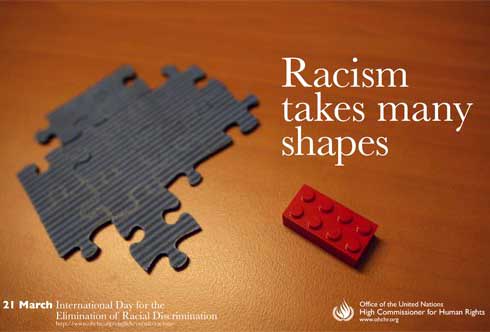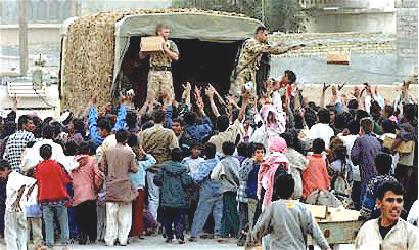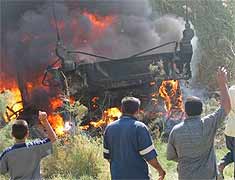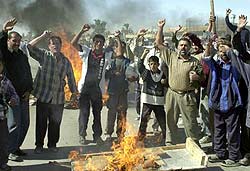It has been three years since the war to ‘liberate’ Iraq. After the supposed threat of Saddam’s WMD, the fabricated links to Al Qaeda, his brutality towards his own people, and the threat his regime’s continued existence posed to the security of the ‘West’, the Bush administration has finally settled on democracy promotion as the raison d'etre for the war.
The arguments for bringing democracy to an oppressed people ranged from the reasonable (a democratic government is more desirable than a brutal dictator) to the farcical (a democratic Iraq will act as a beacon of freedom and liberty, prompting a democratic transformation across the entire Middle East). Far from bringing stability and freedom to the Iraqi people, the Bush administration’s policy of democracy promotion has divided the country along ethnic/sectarian lines and threatens to push the country into
civil war.
Aside from the fact that the recent elections and the constitutional process are further cementing the ethno/sectarian split, some other benefits from the war include:
Between
33679 and 37795 civilian deaths as a result of military intervention.
Daily insurgent attacks, Feb 2004 -
14Daily insurgent attacks, July 2005 -
70Daily insurgent attacks, January 2006 -
75Trained Iraqi Troops Needed by July 2006 -
272,566Trained Iraqi Troops Able to Fight Without Major US Support, in Feb 2006 -
0Iraqi Unemployment Rate -
25 to
60%Average Daily Hours Iraqi Homes Have Electricity -
10.0Average Daily Hours Baghdad Homes Have Electricity -
5.2Number of Iraqi Homes Connected to Sewer Systems -
37%Percentage of Iraqi Homes with Access to Piped Water -
78%Hepatitis Outbreaks -
2002, 100; 2003, 170; 2004, 200.Children Enrolled in Primary School -
2000, 3.6 million; 2004, 4.3 millionWorld Bank Estimate of Iraq Reconstruction Costs -
$55.3 billionResults of Poll Taken in Iraq in August 2005 by the British Ministry of Defense (Source: Brookings Institute)
Iraqis "strongly opposed to presence of coalition troops -
82%Iraqis who believe Coalition forces are responsible for any improvement in security –
less than 1%Iraqis who feel less secure because of the occupation -
67%Iraqis who do not have confidence in multi-national forces -
72%Iraqis who rarely have safe, clean water -
71%Iraqis who never have enough electricity -
47%(Statistics taken from
here and
here.)
The difficulties in forming a unified national government, the continuing insurgency, the bombing of the Golden Mosque in Samarra, and the horrific wave of retaliatory violence have convinced many that Iraq is on the brink of a civil war.
The fact that Iraq is in this state, not six months after the war but
three years after, is an appalling and tragic policy failure.
The
naïve and hubristic attitude of Bush and his cabal in the face of this is embarrassing and irresponsible.












